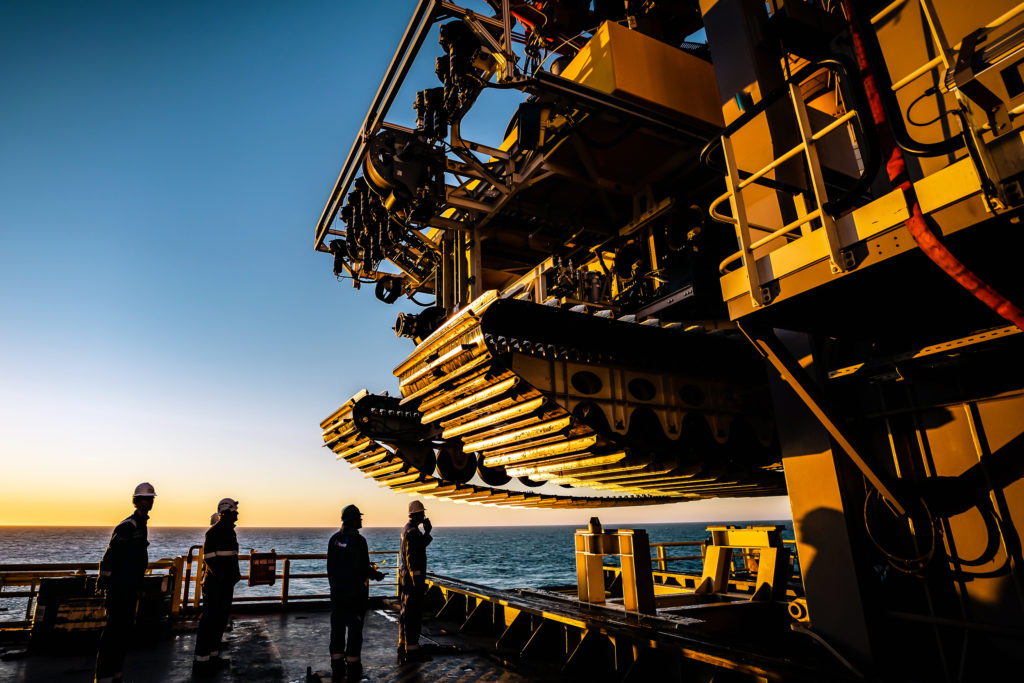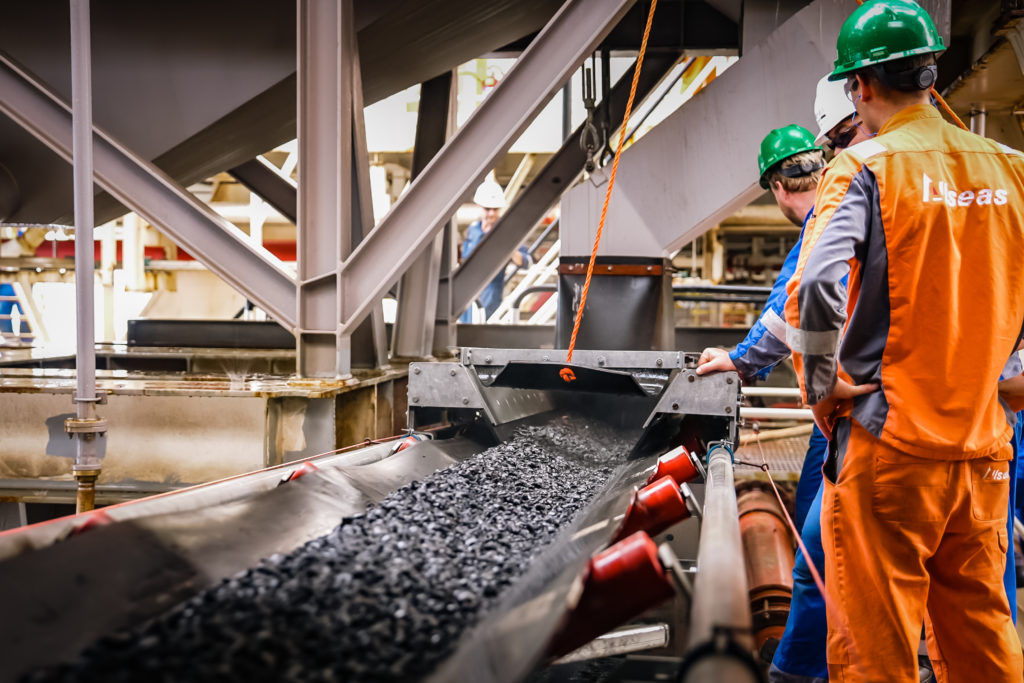CAPITALI$T HUBRIS
The deep sea mining debate is “gone” — it’s happening, says The Metals Company CEOBruno Venditti | April 11, 2023 |

Automakers and steelmaking companies have shown interest in the technology, according to Gerard Barron.
Despite opposition from environmental groups, the CEO of The Metals Company (TMC) which has exclusive access to the Nori Clarion-Clipperton Zone (CCZ) polymetallic project, located 4,000 metres deep in the northeastern Pacific Ocean and ranked as the world’s biggest undeveloped nickel project, sees deep sea mining happening by the end of 2024.

Mining international waters is in the spotlight as companies and countries are looking at minerals concentrated on the ocean floor that can be used in batteries for smart phones and electric vehicles.
The Metals Company has said the nodule resource is now estimated at four megatons (Mt) measured, 341Mt indicated and 11Mt inferred mineral resources.
It is estimated that 21 billion tonnes of polymetallic nodules are resting on the ocean floor in the CCZ. Almost 20 international mining companies have contracts to explore the region which spans over 5,000 kilometers and is considered the most prolific area for ocean mining.
The International Seabed Authority (ISA) said it will start accepting applications in July from companies that want to mine the ocean’s floor. The recent decision came after the UN body spent weeks debating standards for the practice.
In 1994, the UN Convention on the Law of the Sea established the ISA to regulate the industrialization of the seabed in international waters and ensure effective marine environmental protection.
The ISA had been slowly developing the mining code. However, Nauru, a South Pacific island nation of 8,000 people, sped things up by triggering a two-year rule in the Law of the Sea treaty. That provision required the ISA to complete the mining code by July 9, 2023, or accept mining applications under whatever regulations existed at the time.
“People think we are debating if this (deep sea mining) should happen or not, and that’s gone. It’s happening,” The Metals Company CEO Gerard Barron told MINING.COM.
“The International Seabed Authority has been mandated to regulate this activity and put in place the exploration and the exploitation regulations while protecting the marine environment. The NGOs have been trying to use the legal method to oppose deep sea mining, to perpetuate a delay. How badly they’ve got it wrong.”
According to Barron, organizations like Greenpeace and the WWF have been trying to cast doubt over the technology, by trying to perpetuate the idea that they can cause a moratorium on deep sea mining.
“There is no legal framework to allow it, the convention of the Law of the Sea is really very flat,” said Barron.
Related: The Metals Company calls video of mining waste dumped into the sea misinformation as stock sinks
Twelve nations, however, have expressed reservations supporting a ban, a moratorium, or “a precautionary pause” on the start of the commercial exploitation of deep sea mineral resources.
“This is all just noise. Even the nations that are resistant, like France and Germany, have been working very hard over the last weeks to progress the code,” said Barron.
By the convention, only sovereign nations or contractors sponsored by a state can apply to explore the deep sea. The Metals Company has three sponsoring states, the Kingdom of Tonga, the Republics of Nauru, and of Kiribati.
The Metals Company’s NORI-D Project is the world’s most advanced, and is sponsored by the Republic of Nauru.

Metal reserves in the deep sea are estimated to be worth anywhere from $8 trillion to more than $16 trillion. (Image: The Metals Company)
Recently, a robotic collector vehicle on the sea floor in the CCZ pulled up about 3,500 tonnes of nodules up the airlift riser to the vessel.
The company plans to have an environmental impact statement as part of the application for a commercial license by the end of the year and start extracting by the end of 2024.
“They talk about more science, but guess who’s doing the science? It’s companies like us,” said Barron.
Recently, a robotic collector vehicle on the sea floor in the CCZ pulled up about 3,500 tonnes of nodules up the airlift riser to the vessel.
The company plans to have an environmental impact statement as part of the application for a commercial license by the end of the year and start extracting by the end of 2024.
“They talk about more science, but guess who’s doing the science? It’s companies like us,” said Barron.
Chinese competition
While debating with environmental groups, western firms like The Metals Company are also facing competition from Asian enterprises.
Last month, China Daily reported that the country will make renewed efforts to join the race to mine the deep sea for critical minerals.
“There is no doubt that China will be fast on our heels. But they will be held to the same very high standards, and China also wants strong environmental regulations as well,” said Barron.
Investment from automakers
The Metals Company already has its first production vessel, the Hidden Gem, and plans to use an existing plant in Japan to process the wet nodules.
Despite a moratorium signed by Samsung, Volkswagen, Renault-Nissan-Mitsubishi, BMW and Volvo Trucks to wait until more research is done on deep sea mining, companies like Tesla, BYD, CATL and GM did not sign.
According to Barron, automakers have shown interest in investing in the company.
“Steelmaking companies are interested too since most nickel and manganese go to the steelmaking industry,” said Barron.
No comments:
Post a Comment